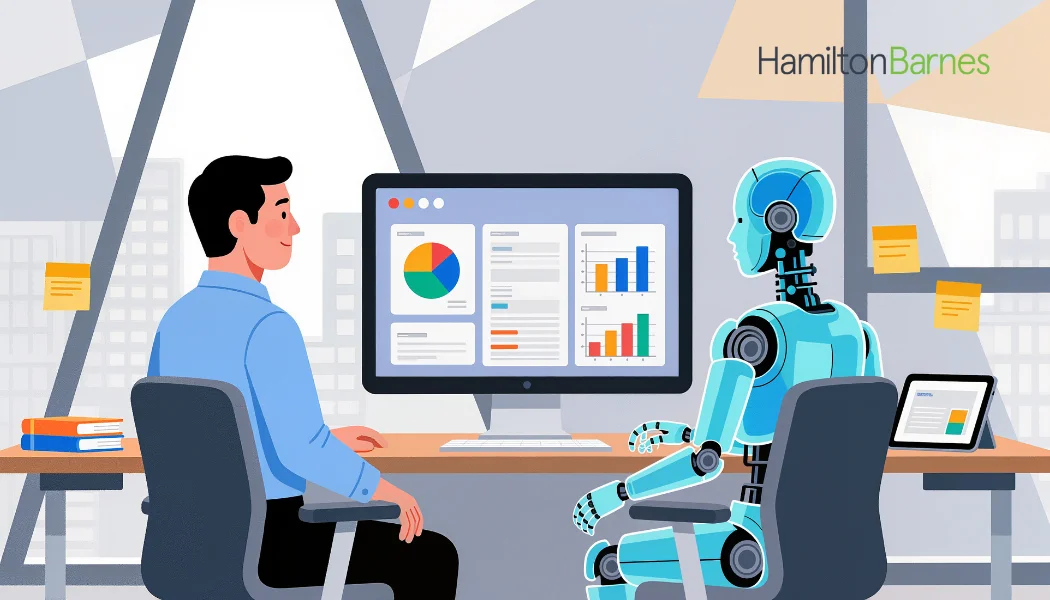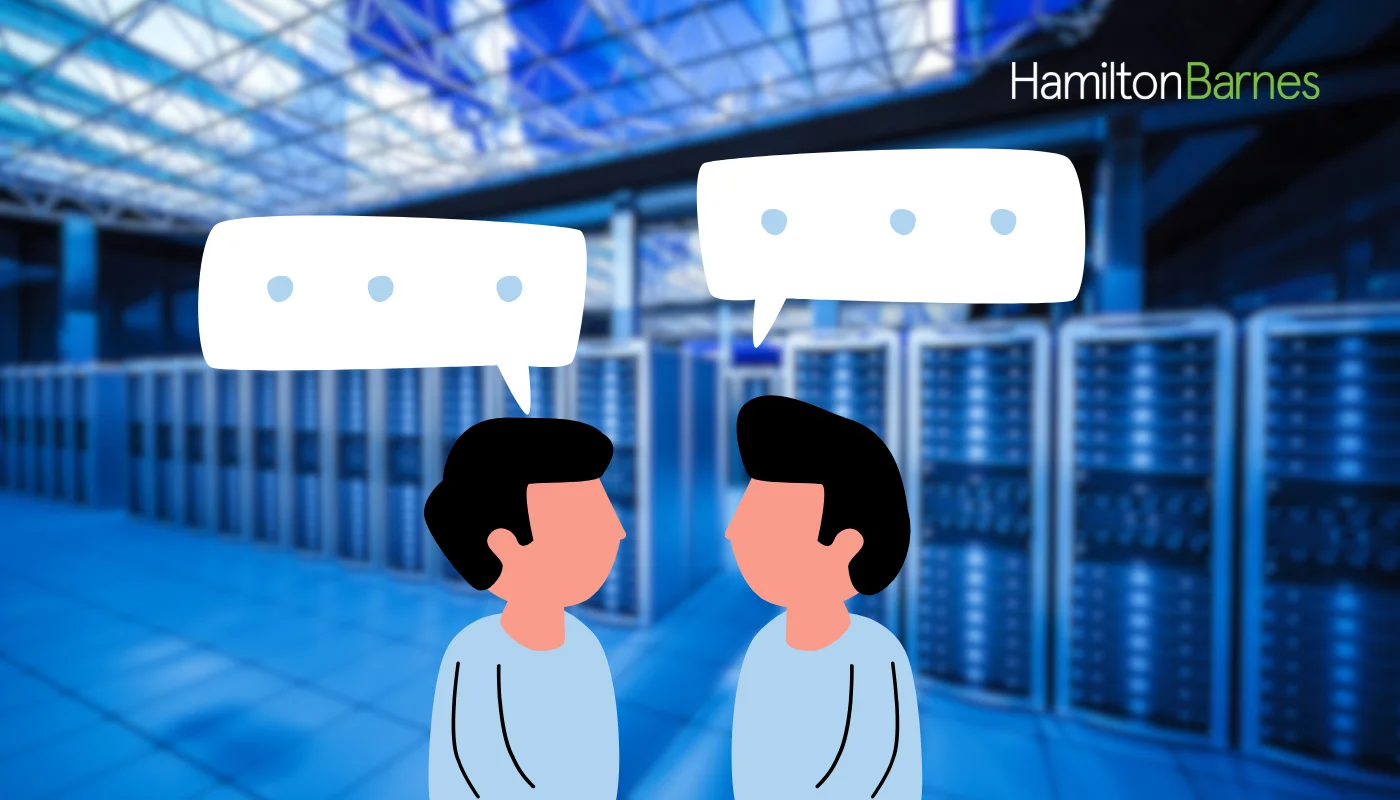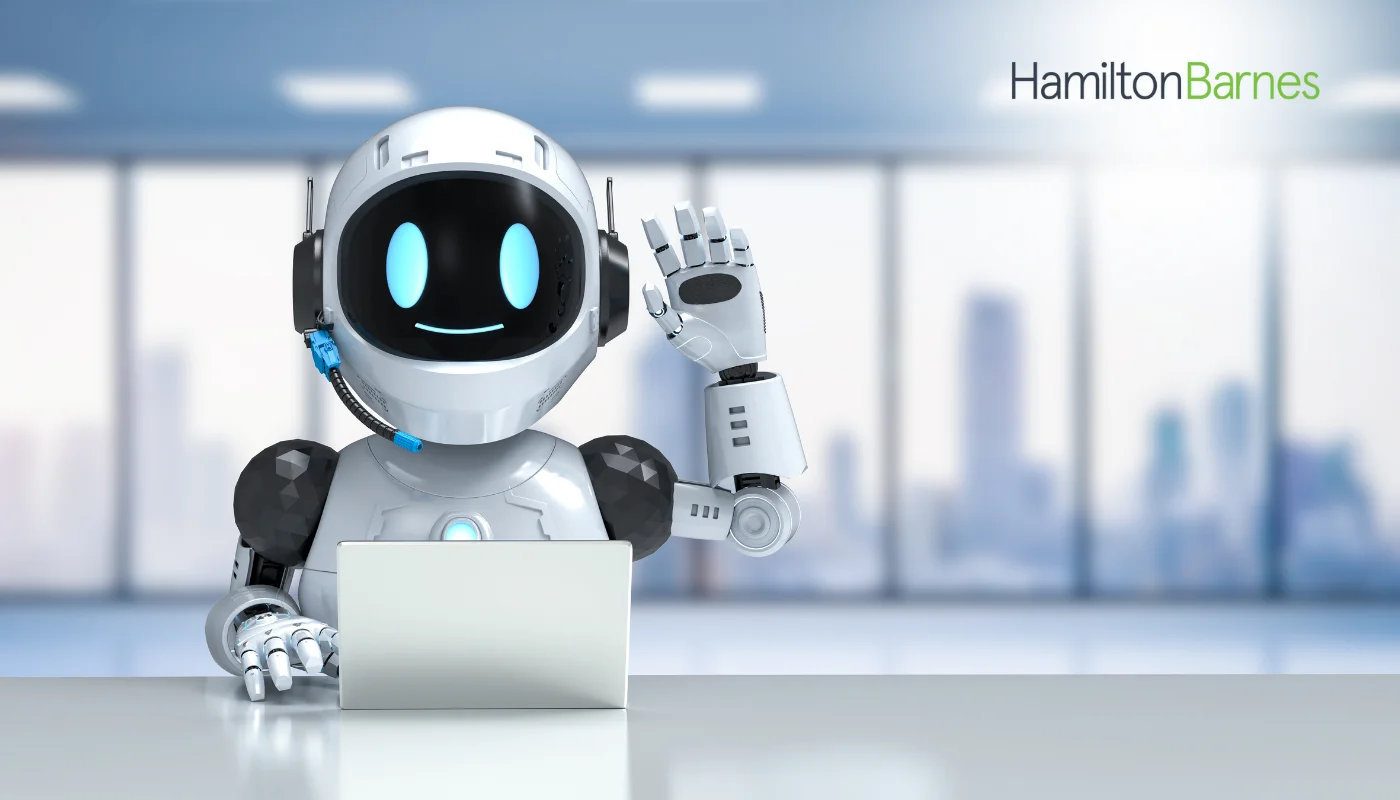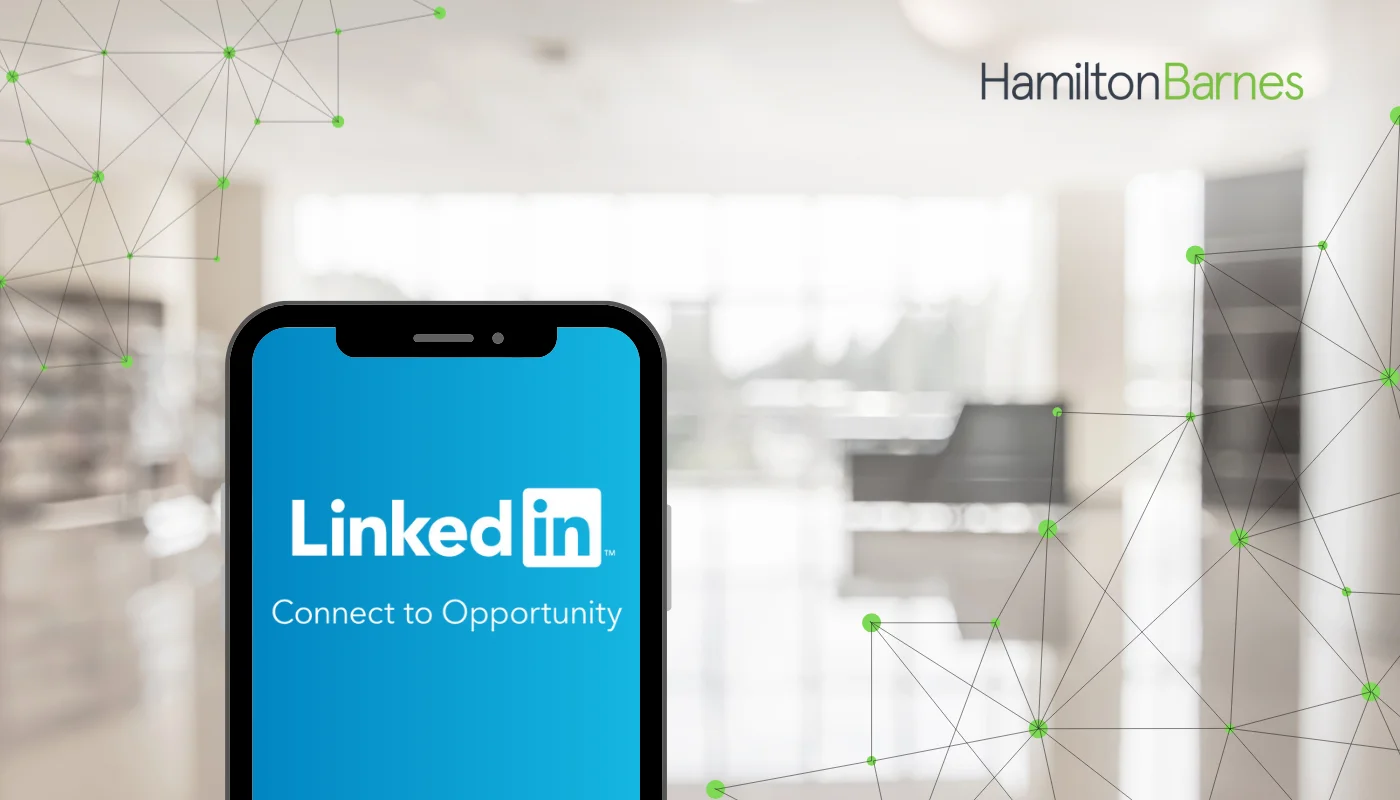AI Isn’t Replacing Network Engineers - But It Is Redefining the Job (Here’s What You Need to Know)
11 Nov, 20258 minutes
AI Isn’t Replacing Network Engineers - But It Is Redefining the Job (Here’s What You Need to Know)
Let’s be honest: if you’re studying Networking, Cyber Security, or anything remotely technical right now, the rise of AI can feel unsettling. Everywhere you look, there’s a new tool that can build configs, write scripts, troubleshoot issues, or monitor networks faster than a junior engineer ever could.
It’s completely understandable if you’ve had a moment of, “Is this going to replace the job I’m working towards?”
You’re not alone in that fear - we hear it from students every week.
But here’s the actual truth:
- Yes, your job will change.
- No, it’s not disappearing.
- If anything, demand for engineers is increasing because of AI, not in spite of it.
Let’s break down what’s really happening.
The Problem: “AI is already doing the tasks I’m learning…”
AI can do a surprising amount of early-career technical work:
- Build Python scripts in seconds
- Suggest firewall rules
- Generate VLAN or routing configs
- Analyse traffic patterns
- Assist with documentation
- Suggest solutions to basic issues
When you’ve spent hours learning subnetting, or days building a lab, seeing AI do it instantly can feel disheartening.
This fear isn’t irrational. It’s a very human response to rapid change.
But it’s not the whole story.
The Reality: AI is replacing tasks, not jobs
AI is brilliant at structured, predictable, repeatable tasks.
Human engineers, on the other hand, deal with complexity.
AI cannot:
- Design scalable, secure networks
- Understand business constraints or risk
- Make judgement calls during outages
- Navigate physical infrastructure (cabling, RF, hardware)
- Communicate with clarity and empathy
- Work with ambiguity
- Build trust with stakeholders
- Collaborate in a team
- Manage conflict
- Take responsibility for outcomes
AI gives answers.
Engineers provide judgement.
What you can do:
You bring context, responsibility, communication, adaptability, and the ability to handle messy real-world situations - none of which AI can replicate.
How the Job Is Evolving - and Where You Add Value

1. Fundamentals will become your strongest protection
AI can generate configs, but it can’t tell you whether they’ll break the network tomorrow morning.
It doesn’t understand why an ACL needs to be placed on a specific interface, or why BGP behaviour changes with topology.
If you don’t understand the fundamentals, you won’t spot the risks.
What you can do:
Learn the foundations deeply - routing, switching, subnetting, protocols, troubleshooting. These skills allow you to supervise and correct AI outputs, not blindly trust them.
2. Critical thinking becomes the core of the job
AI can suggest solutions. It can’t decide if they’re:
- Appropriate
- Secure
- Scalable
- Operationally safe
- Business-aligned
Engineering is full of trade-offs. AI doesn’t understand trade-offs - you do.
What you can do:
Strengthen your decision-making. Practise weighing options, assessing risk, and understanding the real impact of changes beyond what the AI “suggests.”
3. Soft skills become even more valuable
AI cannot communicate, collaborate, or work as part of a team.
It cannot:
- Explain an issue in plain English
- Notice when a customer is anxious
- Adapt its tone
- Build trust
- Work cross-functionally
- Navigate disagreements
- Support colleagues during an incident
But these are the skills that keep networks running and teams functioning.
What you can do:
Develop your communication and teamwork muscles. Practise explaining concepts simply, asking good questions, working with different personalities, and staying calm when others can’t.
4. Architecture matters more than memorising CLI
We’re moving toward orchestrated, automated, AI-assisted networks.
Typing commands isn’t the future.
Understanding why networks are built a certain way is.
Engineers will spend less time configuring and more time designing, governing, and validating.
What you can do:
Build your architectural awareness. Start looking at the bigger picture, understanding how systems link together, and why certain designs are chosen.
5. Cybersecurity remains deeply human
AI improves visibility and speeds up detection.
But cyber isn’t about alerts - it’s about interpretation.
You need human thinking to:
- Understand attacker behaviour
- Assess risk
- Plan responses
- Make immediate decisions
- Consider the human impact
What you can do:
Think critically about intent, risk and context. Cyber relies on human reasoning - learning these skills now will set you up for long-term resilience.
6. Data centre careers are expanding fast
This is the wildcard that surprises most grads.
AI needs enormous physical infrastructure.
It relies on:
- Fibre
- High-bandwidth switching
- Cooling
- Power
- DCI (Data Centre Interconnect)
- Edge networking
- 5G and satellite backhaul
Because of this, data centre networking is one of the fastest-growing technical career spaces.
What you can do:
Learn the basics of data centre environments - cabling, fibre, physical topology, redundancy, cooling, large-scale design. These skills put you ahead of most graduates.
So what will your job actually look like in an AI-driven future?
This is the part most people never talk about, not the skills, but the day-to-day reality.
Here’s the honest picture of what’s changing.
You’ll spend less time typing, more time thinking
AI will handle the repetitive bits: generating configs, writing documentation, suggesting fixes.
Your time goes into:
- reviewing
- validating
- deciding
- designing
The job becomes more thoughtful, less mechanical.
You’ll use AI tools the way engineers use calculators
Not as a replacement - as an accelerator.
You’ll check its work, not follow it blindly.
Troubleshooting will become more collaborative
AI will surface patterns quickly, but the final call will sit with you.
You’ll diagnose the grey areas where AI can’t see context.
You’ll work more across teams
AI taking over routine tasks means more time spent with:
- security
- cloud
- data centre operations
- architecture
- customers and stakeholders
The job becomes broader, and more human.
You’ll shape networks, not just maintain them
With AI handling the basics, engineers will move closer to design, strategy and governance earlier in their careers.
This is a huge opportunity for graduates who want progression.
So, what should you focus on right now?
To future-proof your early career, concentrate on:
- Strong networking fundamentals
- Basic security concepts
- Understanding data centre and cloud architecture
- A light awareness of automation (you don’t need to be a coder)
- Communication and teamwork
- Practical projects or home lab experience
- Curiosity and willingness to learn new tools, including AI
This combination makes you highly employable in an AI-supported world.
Final Thought: Your career isn’t being replaced - it’s evolving
AI is taking away some of the repetitive tasks junior engineers used to spend years on.
That isn’t a threat, it’s an opportunity.
You’re not being replaced.
You’re being elevated into a more strategic, more human, more impactful version of the job.
The future belongs to engineers who understand technology deeply, communicate clearly, collaborate effectively, and use AI intelligently.
And if you start strengthening these skills now, you’ll be in a remarkably strong position over the next decade.
FAQ's
Will AI replace junior networking jobs?
No. Tasks will change, but roles remain essential - especially in data centres and security.
Should I still learn networking fundamentals?
Absolutely. They matter more now because you need to recognise when AI is wrong.
Should I learn Python if AI can write scripts?
Yes. You need to understand what a script does, even if AI writes it for you.
Which areas are safest from automation?
Roles that rely on judgement, communication, physical infrastructure or security thinking remain strongly human-led. This includes network engineering, cyber security, wireless/5G,data centres, cloud networking, solution architecture, field engineering, and any role that involves customer interaction or incident response.
What networking jobs are likely to remain safe in the AI evolution?
Jobs that involve physical work, architecture, strategy or real-time decision-making are very unlikely to be automated. These include:
- Data Centre Network Engineer
- Network Security Engineer
- Cloud/Hybrid Network Engineer
- Wireless and 5G Engineer
- SATCOM / Radio / RF Engineer
- Solutions Architect
- Customer-facing technical roles
- Incident Response Engineer
These roles need human reasoning, communication and real-world awareness that AI can’t replicate.
Is it worth going into data centres right now?
Very much so. Data centres are experiencing huge demand because AI and cloud computing require massive physical infrastructure - fibre, cooling, power, high-bandwidth connectivity, security and resilient design. It’s one of the strongest, fastest-growing areas for graduates, with long-term career security.
Which areas are most secure from automation?
Data centre networking, cloud networking, cyber security, wireless/5G, satellite networking and architecture roles.
Is networking still a strong career choice for the next decade?
Yes. AI is increasing the need for infrastructure, and engineers are needed more than ever.




